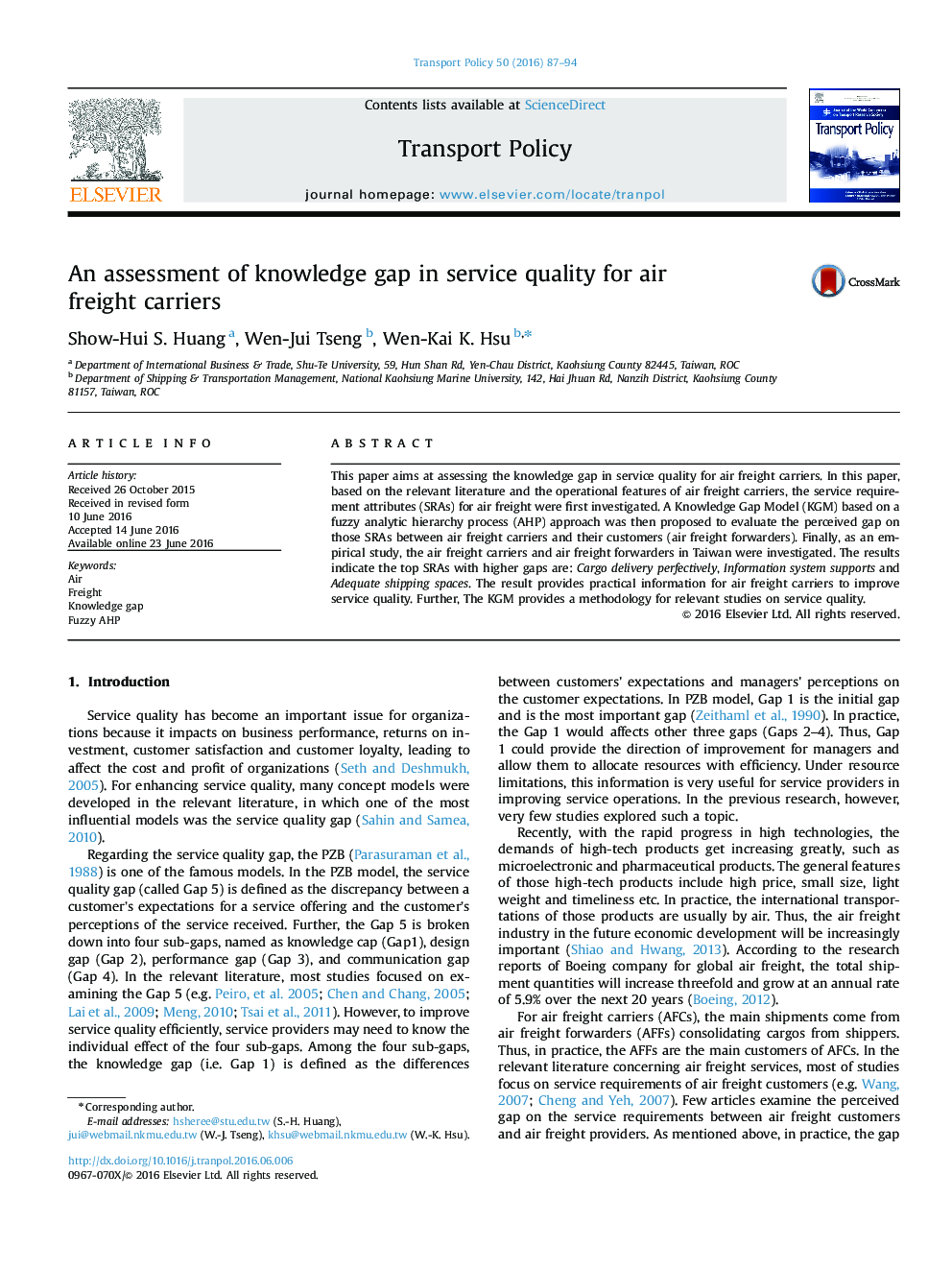| Article ID | Journal | Published Year | Pages | File Type |
|---|---|---|---|---|
| 1064690 | Transport Policy | 2016 | 8 Pages |
•In relevant literature, few articles examine the knowledge gap. In practice, with resource limitations, the gap is very useful for service providers to allocate their resources efficiently.•A Knowledge Gap Model (KGM) based on fuzzy AHP is proposed to evaluate the knowledge gap.•The air freight carriers in Taiwan and their customers (air freight forwarders) were empirically investigated to validate the KGM.•The results indicate the service requirement attributes (SRAs) with higher gaps are: Cargo delivery perfectively, Information system supports and Adequate shipping spaces.
This paper aims at assessing the knowledge gap in service quality for air freight carriers. In this paper, based on the relevant literature and the operational features of air freight carriers, the service requirement attributes (SRAs) for air freight were first investigated. A Knowledge Gap Model (KGM) based on a fuzzy analytic hierarchy process (AHP) approach was then proposed to evaluate the perceived gap on those SRAs between air freight carriers and their customers (air freight forwarders). Finally, as an empirical study, the air freight carriers and air freight forwarders in Taiwan were investigated. The results indicate the top SRAs with higher gaps are: Cargo delivery perfectively, Information system supports and Adequate shipping spaces. The result provides practical information for air freight carriers to improve service quality. Further, The KGM provides a methodology for relevant studies on service quality.
